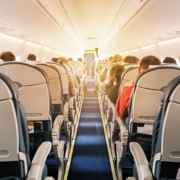For immediate release: February 9, 2022
Media contact: National Consumers League – Carol McKay, carolm@nclnet.org, (412) 945-3242 or Katie Brown, katie@nclnet.org, (202) 207-2832
Washington, DC—The National Consumers League (NCL), the nation’s pioneering worker and consumer advocacy organization, has released “A woman’s right to choose: Equal access to health care threatened,” a new episode in its We Can Do This! podcast series. Hosted by NCL Executive Director Sally Greenberg, the episode features a conversation with Karen Mulhauser, longstanding champion for women’s rights. Mulhauser served as the first appointed executive director of the National Abortion Rights Action League (NARAL) in 1974, shortly after the 1973 Roe v. Wade case was decided by the Supreme Court, securing the right to abortion. After leading NARAL, Mulhauser’s work took many directions, including empowering women to register and vote, and the founding of Every Woman Vote 2020.
“With NCL’s long history in advocacy for safe, effective access to health care, we welcome Karen Mulhauser’s perspective on the historical fight for a woman’s right to choose. Mulhauser gives us an intimate view into why these protections are so important and so fragile,” said Greenberg.
An excerpt of Karen’s interview: “One in three women have an abortion. … My story is one that when I was in college and got pregnant unintentionally, I self-induced, and for decades I didn’t talk about that. But part of what I think needs to happen is that people have to tell their stories. … We are losing our democracy, and that’s why I’m building a voter initiative for this. In my long years of life, this is the most important election of my life. And I want to do whatever I can to mobilize as many people as possible.”
This episode contains sensitive topics. Listener discretion is advised.
This episode is now available on nclnet.org and on Apple Podcasts and Google Podcasts.
NCL’s We Can Do This! Podcast | Episode 16
“A woman’s right to choose: Equal access to health care threatened”
Episode description: The National Consumers League believes in equal health care access for all, and that includes a woman’s right to choose. With the looming possibility of Roe v. Wade being overturned and new laws adopted in states around the country restricting women’s access to abortion and other reproductive services, we sat down with pioneering abortion rights champion — Karen Mulhauser — NARAL’s first Executive Director, for a historical perspective on abortion. Mulhauser discusses her personal story, political organizing and her work to secure rights and protections for women.
###
About the National Consumers League (NCL)
The National Consumers League, founded in 1899, is America’s pioneer consumer organization. Our mission is to protect and promote social and economic justice for consumers and workers in the United States and abroad. For more information, visit www.nclnet.org.













